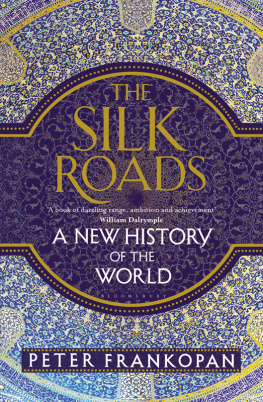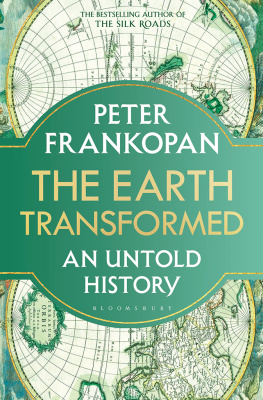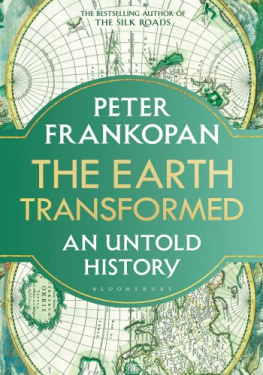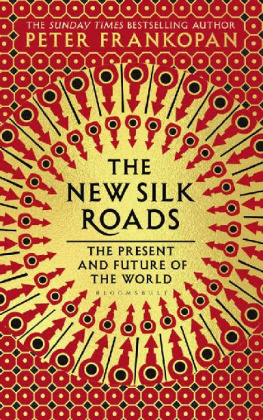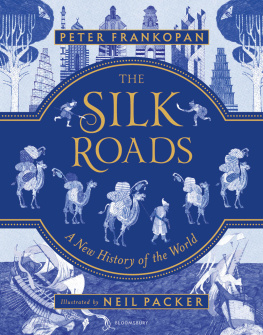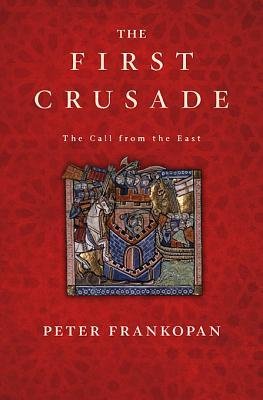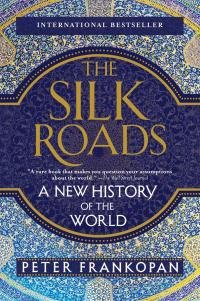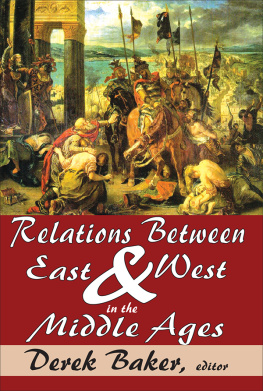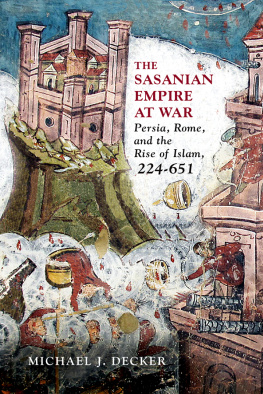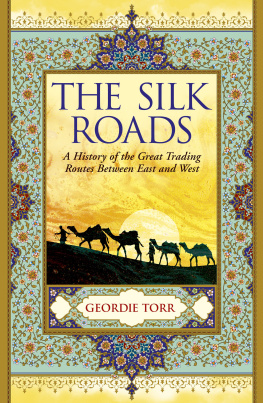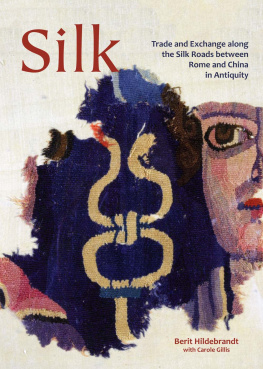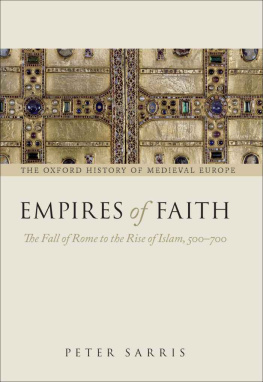There is no finer place in the world for a historian to work than Oxford. The libraries and collections are second to none, while the librarians are brilliant in their resourcefulness in tracking down materials. I am particularly grateful to the Bodleian Library, the Oriental Institute Library, the Sackler Library, the Taylor Slavonic and Modern Greek Library and the Middle Eastern Library at St Anthonys College, and to all their staff. I could not have written this book without the use of the astonishing resources of Oxford University, and without the support and patience of those who look after them.
I spent much time at the National Archives in Kew reading letters, telegrams and memos held in Foreign Office records, working through minutes of Cabinet meetings, or examining Ministry of Defence proposals all of which reached me within forty minutes. I am thankful for the efficiency and courtesy of all those who work there.
The University Library in Cambridge allowed me to consult the papers of Lord Hardinge, while the Churchill Archives Centre at Churchill College, Cambridge, kindly let me read the private diaries of Maurice (Lord) Hankey and also gave me access to the remarkable archive of the Propaganda Research Section Papers assembled by Mark Abrams. I must thank the BP Archive at the University of Warwick and Peter Housego, the Archive Manager, for digging out a large number of files relating to BP and its predecessors, the Anglo-Persian and Anglo-Iranian Oil Companies.
I am also grateful to the National Security Archive at George Washington University, a non-governmental collection of declassified documents relating to international affairs and, above all, to the history of the United States in the twentieth and twenty-first centuries. This is a treasure trove of important source material from recent decades. Being able to find so many documents in one place saved me repeated journeys across the Atlantic that would have been frustrating and time-consuming.
I should thank the Provost and Fellows of Worcester College, Oxford, who have been wonderfully and consistently kind since I came to the college as a Junior Research Fellow nearly twenty years ago. I am fortunate to work alongside a remarkable group of scholars at the Oxford Centre for Byzantine Research, where Mark Whittow in particular has been a never-ending source of inspiration and encouragement. Conversations and discussions with colleagues and friends in Oxford and elsewhere and in travels across Britain, Europe, Asia and Africa have helped refine good ideas, and sometimes prompted bad ones to be discarded.
Several colleagues and friends read chapters of the book, and I owe each a debt of gratitude. Paul Cartledge, Averil Cameron, Christopher Tyerman, Marek Jankowiak, Dominic Parviz Brookshaw, Lisa Jardine, Mary Laven, Seena Fazel, Colin Greenwood, Anthony McGowan and Nicholas Windsor all read sections of this book, and made helpful and incisive comments that helped make it better than it otherwise would have been. I am thankful to Angela McLean for pointing me towards the latest research on plague and the spread of infectious disease in Central Asia.
In recent years, history books have tended to focus on increasingly narrow subject matter over ever shortening timeframes; I am thrilled that Bloomsbury and Knopf were keen to provide a home for an ambitious book that spans centuries, continents and cultures. My editor Michael Fishwick has been a pillar of support from the outset, urging me to cast my horizons wide, and then waiting patiently as I did so. His good humour, sharp eye and unswerving backing were as reliable as they were invaluable. I am grateful too to Andrew Miller at Knopf for astute observations, questions and ideas that were both helpful and well-timed.
There are many at Bloomsbury that I should thank. Anna Simpson played the role of circus master with exemplary charm, ensuring everything was in the right place and in good order from typeface to maps, from images to pagination to turn a computer document into a beautiful real-life book. Peter James worked through the manuscript more than once and made elegant suggestions on how and where the book could be improved; his good judgement was much appreciated. Catherine Best did a wonderful job as the proofreader, picking up problems that I had never even noticed, while David Atkinson heroically produced the index. The maps were made by Martin Lubikowski, whose skill was matched by his patience, while Phil Beresford helped bring all the lovely images together. Emma Ewbank is responsible for a jacket design that is simply stunning. I am grateful to Jude Drake and Helen Flood for helping to encourage people to read what I have written.
I owe a particular debt of gratitude, however, to Catherine Clarke who, over lunch in Oxford several years ago, told me she thought I might be able to pull multiple strands together in a single work, something I found dubious at the time. Those doubts re-appeared often while I was writing, usually late at night; I am grateful for her advice, support and encouragement, as I am to the tireless Zoe Pagnamenta, my champion in New York. Chloe Campbell was my guardian angel, reading all the chapters of the draft, and ironing out niggles and bad habits gracefully and diplomatically.
My parents like to remind me that they taught me to walk and talk. It was they who gave me my prized map of the world when I was a boy and allowed me to put it on my bedroom wall (though they never gave me permission to use of sticky tape, nor to paste Star Wars stickers on the open oceans). They taught me to think for myself and to challenge what I heard and read. My siblings are I were lucky to be brought up in a household where a multitude of languages could be heard at the dinner table, and where we were expected to follow the conversation and chip in. The lesson of learning to understand what other people said, but also to work out what they really meant, has proved invaluable. I am thankful to my brothers and sisters, my best friends since the nursery, for setting high standards and for being my toughest critics; they are the only people I know who think studying the past is easy.
My wife Jessica has been alongside me for twenty five years, inspiring me since we were earnest undergraduates together, when we debated the meaning of life, talked about the importance of tribal peoples and danced in the cellars of the Cambridge colleges. I have to pinch myself every day how lucky I am. The Silk Roads could not have been written without her.
But this book is dedicated to our four children, who have watched, listened and asked increasingly good questions as I emerged from my study, or re-appeared from air-conditioned or exotic archives to ponder the problem of the day. Katarina, Flora, Francis and Luke: you are my pride and joy. Now the book is finished, I can finally play with you in the garden for as long as you like.
From the beginning of time, the centre of Asia was where empires were made. The alluvial lowlands of Mesopotamia, fed by the Tigris and Euphrates, provided the basis for civilisation itself for it was in this region that the first towns and cities took shape. Systematised agriculture developed in Mesopotamia and across the whole of the Fertile Crescent, a band of highly productive land with access to plentiful water, stretching from the Persian Gulf to the Mediterranean coast. It was here that some of the first recorded laws were disseminated nearly 4,000 years ago by Hammurabi, King of Babylon, who detailed his subjects obligations and set out fierce punishments for their transgressions.
Although many kingdoms and empires sprang up from this crucible, the greatest of all was that of the Persians. Expanding quickly in the sixth century BC from a homeland in what is now southern Iran, the Persians came to dominate their neighbours, reaching the shores of the Aegean, conquering Egypt and expanding eastwards as far as the Himalayas. Their success owed much to their openness, to judge from the Greek historian Herodotus. The Persians are greatly inclined to adopt foreign customs, he wrote: the Persians were prepared to abandon their own style of dress when they concluded that the fashions of a defeated foe were superior, leading them to borrow styles from the Medes as well as from the Egyptians.
Next page
